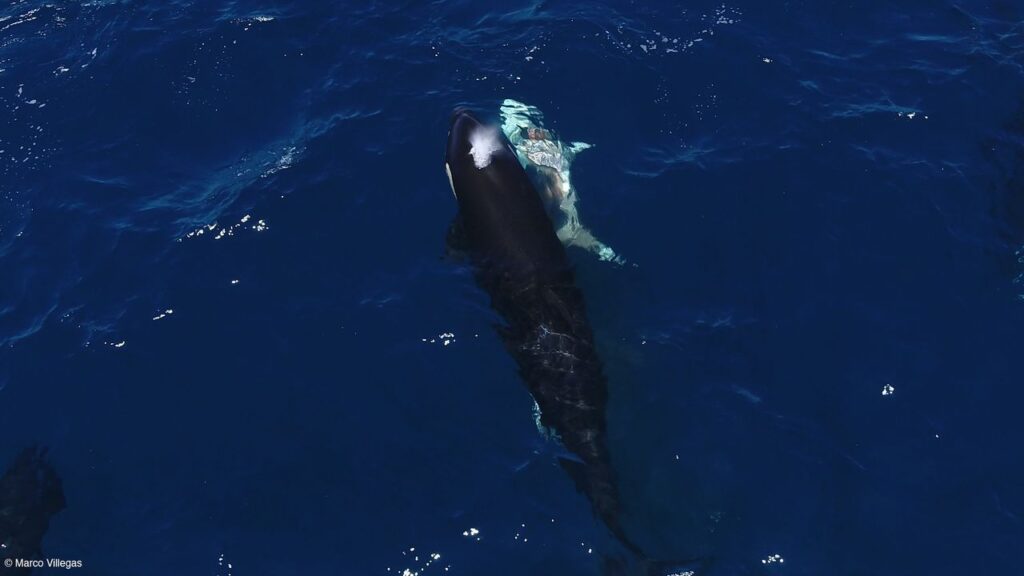
BREAKING: Researchers have just confirmed a shocking new behavior among orcas in the Gulf of California: they are systematically attacking and devouring the livers of juvenile great white sharks. This unprecedented observation reveals a brutal hunting technique involving the immobilization of their prey, marking a significant development in marine predator behavior.
In a recently published study in Frontiers in Marine Science, researchers observed orcas flipping juvenile great whites upside down, inducing a trance-like state known as tonic immobility. This method leaves the sharks defenseless, allowing the orcas to extract their nutrient-rich livers with ease. “This behavior highlights the orcas’ advanced intelligence and strategic hunting methods,” said Jesús Erick Higuera Rivas, the lead author and director of Conexiones Terramar.
The attacks occurred off the coast of Mexico, specifically involving a group of orcas named Moctezuma’s pod. In a disturbing series of events documented in August 2020 and August 2022, the orcas were seen sharing their gruesome feast, emphasizing the social dynamics of their hunting practices.
“This is the first time we are observing orcas repeatedly target juvenile white sharks,” noted co-author Salvador Jorgensen, a marine ecologist at California State University, Monterey Bay. Previously, such behavior was documented only once, in 2023 off the coast of South Africa. The last reliable sighting of orcas hunting juvenile great whites in the Northeast Pacific dates back to 1997.
The implications of these findings are significant. With adult great whites typically fleeing from hunting orcas, juvenile sharks may lack the survival instincts needed to evade these apex predators, making them prime targets. The study’s results suggest that this predatory behavior may be more widespread than previously believed, potentially reshaping our understanding of orca feeding habits.
Observations indicate that as ocean temperatures rise and climate patterns shift, great whites may be breeding in new areas, including Mexican waters. These changes could be driving orca pods to capitalize on more juvenile sharks in the region. “Other pods may soon adopt similar hunting strategies,” warned co-author Francesca Pancaldi, a marine biologist at the National Polytechnic Institute in Mexico.
Scientists stress the urgent need for further research, as these developments could have profound effects on marine ecosystems. As the dynamics between orcas and great whites evolve, the balance of predator and prey in the Gulf of California may be in peril.
This groundbreaking study not only sheds light on the complex behaviors of orcas but also raises critical questions about the future of great white sharks in a changing ocean environment. Stay tuned for further updates as researchers continue to monitor these alarming interactions.
Share this urgent news and stay informed about the latest discoveries in marine biology.






